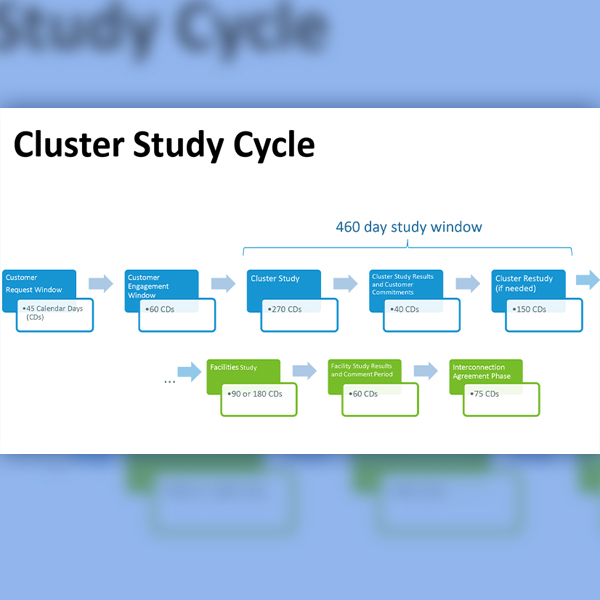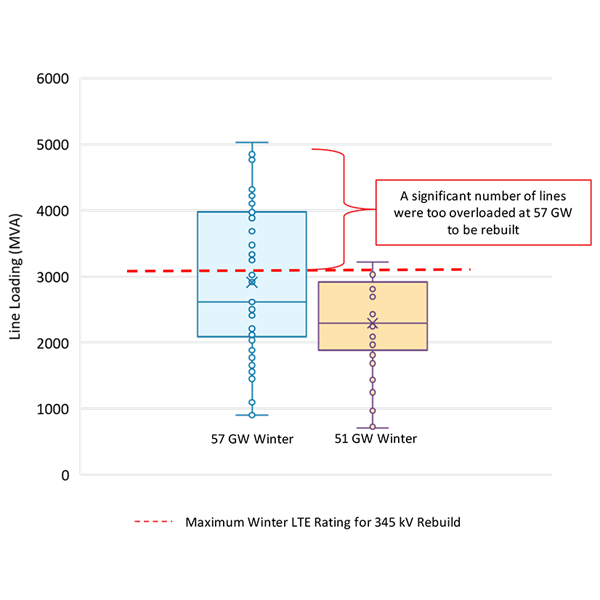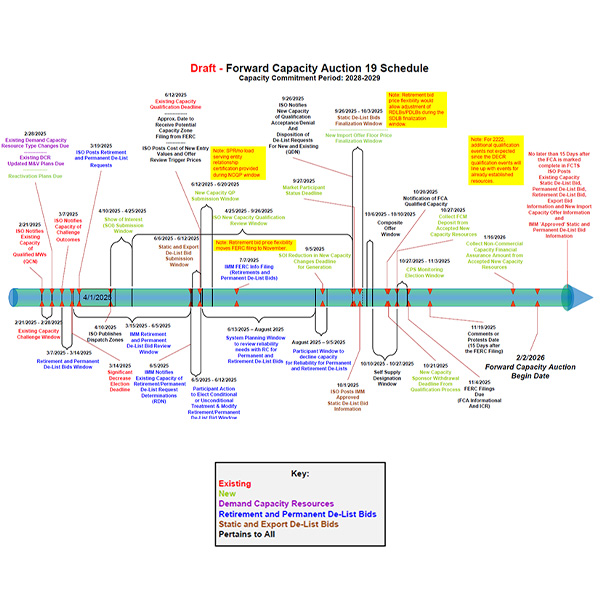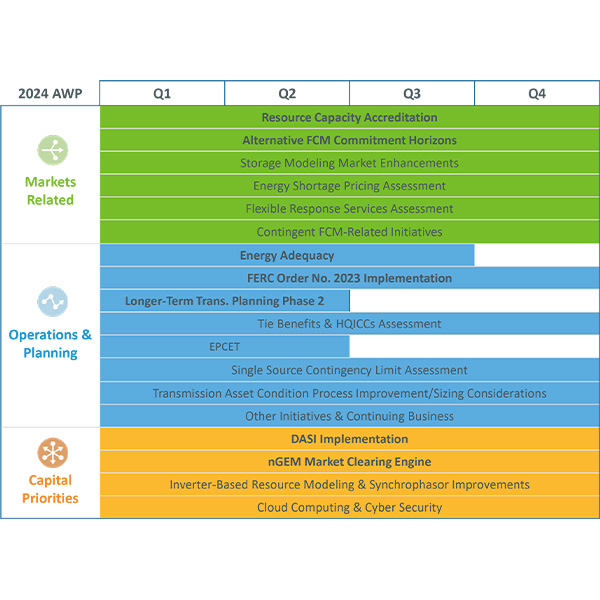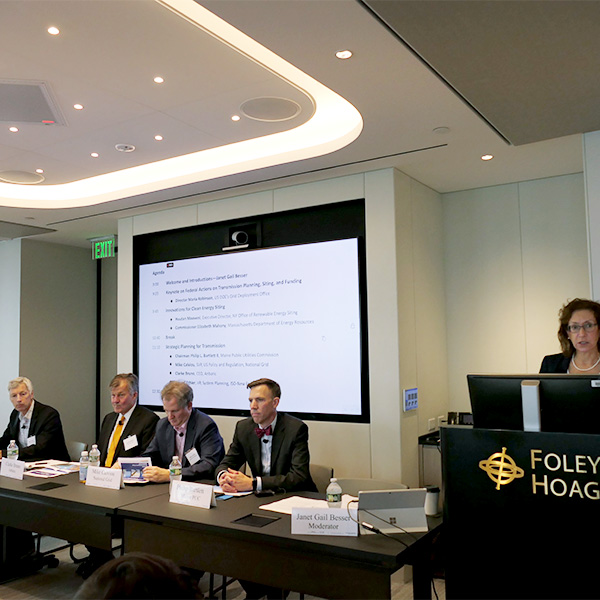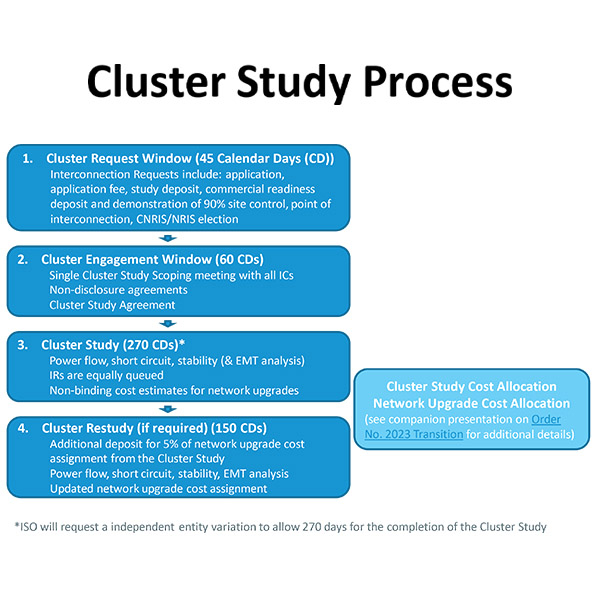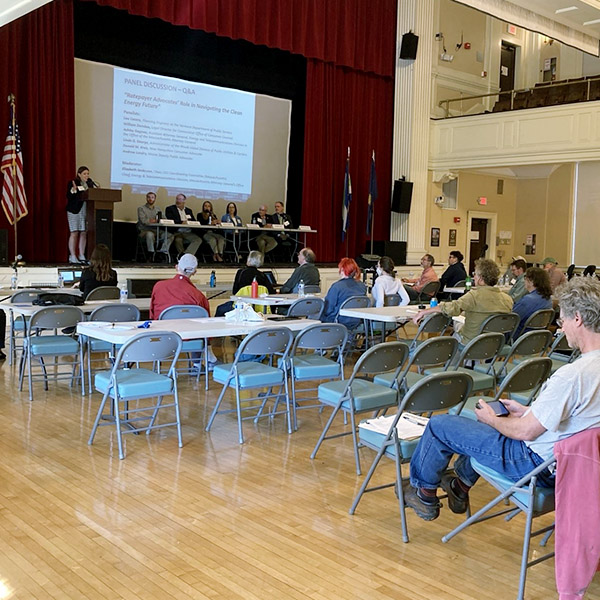ISO-NE
ISO-NE Consumer Liaison GroupISO-NE Planning Advisory CommitteeNEPOOL Markets CommitteeNEPOOL Participants CommitteeNEPOOL Reliability CommitteeNEPOOL Transmission Committee
ISO New England Inc. is a regional transmission organization that oversees the operation of the electricity transmission system, coordinates wholesale electricity markets, and manages power system planning for the states of Connecticut, Rhode Island, Massachusetts, Vermont, New Hampshire, and most of Maine.
ISO-NE is pursuing an alternative compliance pathway on FERC Order 2023 regarding storage resource interconnection, hoping to sidestep the need for “control technology,” the RTO told the NEPOOL Transmission Committee.
Transmission upgrades that are needed to avoid overloads in a fully electrified New England by 2050 could cumulatively cost between $22 billion and $26 billion, ISO-NE told its Planning Advisory Committee.
Some clean energy stakeholders have expressed concerns about the impacts that delaying ISO-NE's FCA 19 would have on new resources looking to secure capacity rights in the auction.
FERC reversed its previous determination that “all interested parties can review and challenge Mystic’s revenue credits and tank congestion charges” in the annual true-up process.
FERC agreed to delay the implementation date in the forward capacity market while clarifying that host utilities are not excluded from the flow of metering information to the RTO.
ISO-NE detailed its 2024 annual work plan, while NEPOOL approved ISO-NE's 2024 budget.
Speakers at Raab Associates’ New England Electricity Restructuring Roundtable emphasized the importance of transmission planning to ensure the grid can handle increased amounts of variable clean energy and higher demand from electrification.
ISO-NE plans to request independent entity variations related to its operating assumptions for storage resources and the cluster study timeframe.
Consumer advocate representatives from all six New England states convened to discuss their role in the transition off fossil fuels.
FERC sided with Brookfield Renewable in the company’s complaint against the RTO. The IEP is intended to compensate resources for storing extra fuel.
Want more? Advanced Search
